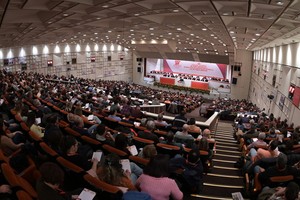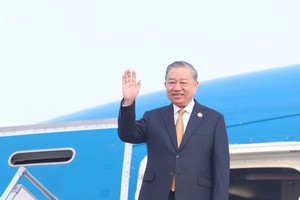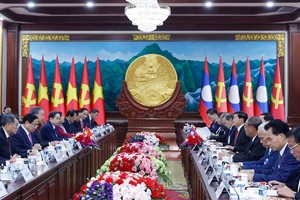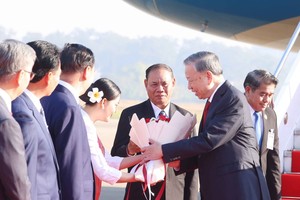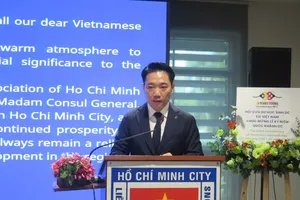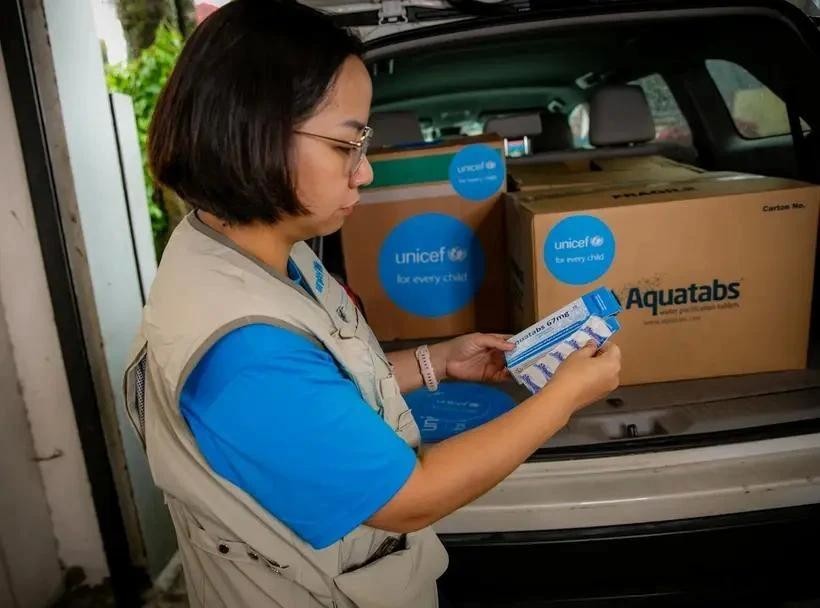
It was part of efforts to help communities affected by typhoon Yagi overcome disaster consequences.
In the coming days, UNICEF will provide water purification tablets, water tanks, ceramic filters, hand sanitizers, and soap to households, schools, and healthcare facilities in Yen Bai and Lao Cai provinces.
It is committed to urgently providing sustained support to the Government of Vietnam to ensure children and families have access to essential services, said Silvia Danailov, UNICEF’s Representative in Vietnam.
“We have already started to deliver life-saving support and are mobilizing resources to address the massive needs. Too many children have had their access to essential services like clean water, sanitation, healthcare, and education cut off and swift action to restore these lifelines is urgently needed. The devastation caused by the typhoon is a tragic reminder of the disproportionate impact extreme weather events, intensified by climate change, have on children,” she said.
Nearly 19 million people, including 5.5 million children, live in the hardest-hit cities and provinces of Lao Cai, Tuyen Quang, Cao Bang, Yen Bai, Quang Ninh, Hai Phong, Hanoi, Thai Binh, Hai Duong, Hoa Binh, Thai Nguyen and Phu Tho.
Typhoon Yagi ravaged 26 northern localities, leaving 324 people dead and missing, including 24 children. It has damaged an estimated 141,469 homes, 550 health facilities, and 805 schools, while around 400,000 homes lack access to safe water.
Approximately 2 million children have been left without access to education, psychosocial support, and school feeding programs.
National authorities have issued a warning for continued heavy rain, with flash floods and landslides still devastating villages and communities in the northern provinces of the country which are home to a large number of vulnerable communities, including ethnic minorities.
In response to the Government's strong and commendable efforts to address the disaster's impact, UNICEF is focusing on several key interventions, including water, sanitation supplies and safe storage solutions to households, health facilities, and schools.
The organization is also delivering emergency medical supplies such as vaccines, malnutrition treatments, nutrition supplements, and hygiene kits to health centers in the most affected areas.
To support the reopening of schools, it is offering temporary learning spaces and educational materials for children affected by the trauma of the disaster. Additionally, emergency kits containing essential items, including educational tools and support materials, are being distributed to children and families.
UNICEF is also providing humanitarian cash assistance to the most vulnerable households, particularly those with children and pregnant women.
They say they are currently mobilizing resources to ensure emergency aid is urgently provided. An initial US$11 million is urgently required to be able to deliver on its mandate to assist the most vulnerable children.
Meanwhile, on September 12, the embassies of Japan and the Republic of Korea (RoK) said that the two countries' governments have decided to provide emergency aid of goods and equipment to Vietnam to help northern localities deal with the typhoon aftermath.
The Japanese government has decided to deliver emergency aid through the Japan International Cooperation Agency (JICA), including water filtration equipment and multipurpose plastic sheets, to address the damage caused by the storm in Vietnam.
Earlier, Japanese Prime Minister Kishida Fumio extended condolences to Prime Minister Pham Minh Chinh over the impact of typhoon Yagi in Vietnam. In the message, Prime Minister Kishida expressed his deep sympathies to the families affected by the storm and emphasized that the Japanese government stands side by side with Vietnam and is ready to support the country in overcoming difficulties, fixing the disaster aftermath, and restoring normal living conditions as soon as possible.
At the same time, the RoK Government has decided to provide humanitarian aid worth US$2 million for Vietnam to fix the consequences of the disaster.
